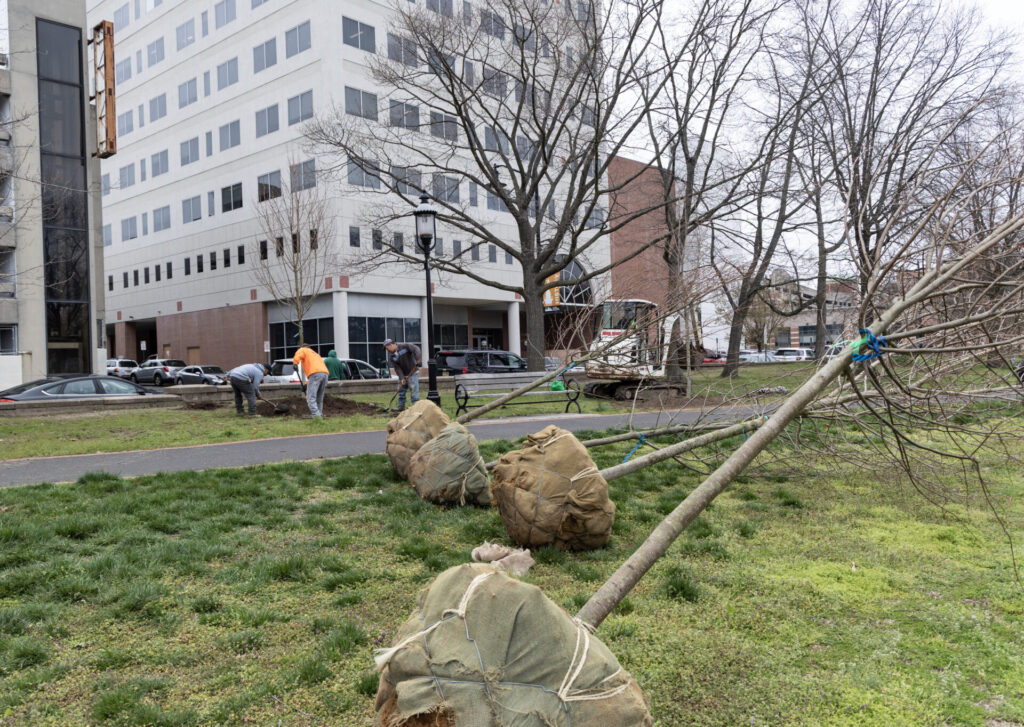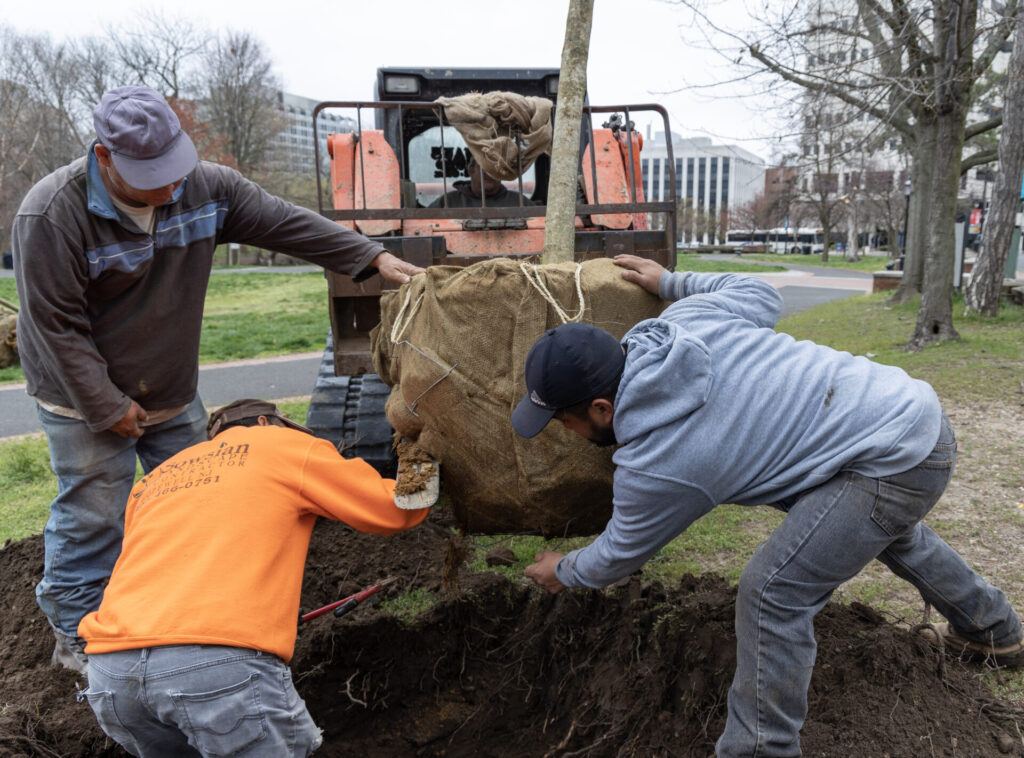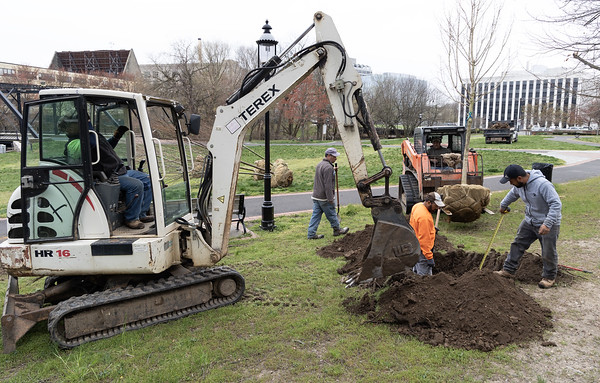Sixteen trees have been planted in Mill Hill Park in Trenton to improve climate resiliency and promote a better environment as the first phase of a larger plan to increase the tree canopy, provide habitat and add shade in the city. These plantings were funded by a grant to The Watershed Institute from The Nature Conservancy through its Roots for Rivers project, an effort to restore the critical land near New Jersey’s riverbanks.

Mill Hill Park is next to Assunpink Creek, which has experienced a decline in its tree canopy due to age, pests and disease and has been prone to significant flooding. Some of the first trees planted were thornless honey locusts, sugar maples, American lindens and American hornbeams.
More trees will be coming to Trenton soon thanks to NJDEP’s Natural Climate Solutions Grant Program and will continue for three years ultimately adding 1,000 trees to the cityscape.
The $1.3 million state grant was awarded to partners including the City of Trenton, New Jersey Conservation Foundation, Isles, the New Jersey Tree Foundation, Friends of Hopewell Valley Open Space (FoHVOS), the Outdoor Equity Alliance and The Watershed Institute. New trees will be planted in areas of the city with few to no street trees and the project will also include reforesting parts of Cadwalader and Mill Hill parks. By 2050, the trees are expected to sequester nearly 3 million pounds of carbon dioxide, reduce 2 million gallons of stormwater runoff and intercept more than 14 million gallons of rainwater.

“The Watershed Institute is excited to be working with The Nature Conservancy, New Jersey Conservation Foundation and other partners to plant trees in Trenton,” said Jim Waltman, the Watershed’s executive director. “Trees address numerous environmental problems by soaking up floodwaters, capturing carbon dioxide from the air to protect our climate, and cooling our cities in the summer heat.”
“One important way to help ensure we can continue to rely upon our precious natural water resources is to restore New Jersey’s floodplains—the critical land near our rivers’ banks. Through the Roots for Rivers reforestation program, we have been able to catalyze floodplain restoration efforts state-wide and help communities protect their local waterways for future generations.” said Michelle DiBlasio, the Freshwater Restoration Manager for the New Jersey Chapter of The Nature Conservancy.
The NJDEP’s Natural Climate Solutions Grant Program is funded by auction monies received through the Regional Greenhouse Gas Initiative (RGGI). Those proceeds are slated for natural resource restoration and enhancement projects that increase carbon stored in natural lands.
“These grants are providing real opportunities for our Environmental Justice communities to take meaningful steps toward climate resilience and an improved environment,” said Kandyce Perry, Director of the DEP’s Office of Environmental Justice. “While each community has differing needs and ways of getting to their goals, they each share the strong desire to help improve the quality of life for their residents.”

“We are grateful to the New Jersey Department of Environmental Protection for investing in the Capital City, protecting our natural resources, and collaborating with us so that we can do our part in the global fight to reduce greenhouse gas emissions,” said Trenton Mayor Reed Gusciora.
“This grant is an investment in our city’s green infrastructure and its people. We now have an opportunity to not only plant trees, but also engage the community in the long-term care that will ensure these trees thrive for the benefit of future generations,” said New Jersey Conservation Foundation Co-Executive Director Jay Watson. “We believe this project can be transformative in our capital city where residents are experiencing disproportionate impacts of climate change.”

